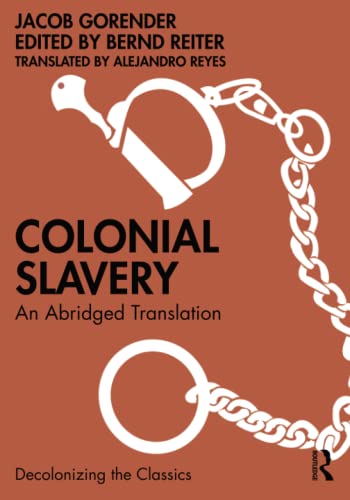

Most ebook files are in PDF format, so you can easily read them using various software such as Foxit Reader or directly on the Google Chrome browser.
Some ebook files are released by publishers in other formats such as .awz, .mobi, .epub, .fb2, etc. You may need to install specific software to read these formats on mobile/PC, such as Calibre.
Please read the tutorial at this link: https://ebookbell.com/faq
We offer FREE conversion to the popular formats you request; however, this may take some time. Therefore, right after payment, please email us, and we will try to provide the service as quickly as possible.
For some exceptional file formats or broken links (if any), please refrain from opening any disputes. Instead, email us first, and we will try to assist within a maximum of 6 hours.
EbookBell Team

4.7
96 reviewsJacob Gorender's (1922-2013) 1978 book, Colonial Slavery (O Escravismo Colonial), comes alive for English-language readers thanks to Bernd Reiter and Alejandro Reyes’ brilliant translation.
Gorender argued that slave-holding societies produced an economic system sui generis, not fitting into any of the established societal categories offered by Karl Marx and Max Weber. As such, Gorender proposed a theory of colonial slavery as the structuring force of slave-holding societies. For him, slave-holding societies are different from other societies in that slavery structured them differently. This is of the utmost relevance to this day as it allows for a new and different way to explain contemporary racial inequalities in post-slavery societies. An accomplished interpreter of Brazilian social formation, Gorender was motivated by the need to understand the historical roots of class domination and the emergence of Brazilian capitalist society. His presentation of rich historical data, rigorous theoretical and analytical framework, and militant action as an active member of the Brazilian Communist Party are the hallmarks of his writing.
Colonial Slavery: An Abridged Translation is a must-read for researchers, teachers, and students of history, sociology, economics, politics, as well as activists of the Black movement and other movements committed to anti-racism.